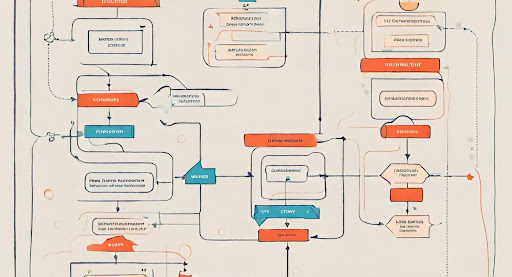
In the fast-paced world of healthcare billing, managing claim denials can be a challenging and time-consuming task. However, with the advent of advanced Denial Management Software, healthcare providers can now streamline their billing processes, reduce errors, and enhance overall efficiency. We will delve into the myriad benefits of utilizing Denial Management Software for billing, exploring how it can positively impact both financial outcomes and operational workflows.
Improved Cash Flow:
Denial Management Software plays a pivotal role in accelerating cash flow for healthcare organizations. By promptly identifying and rectifying denied claims, providers can expedite reimbursement processes, ensuring a steady and consistent influx of revenue. This improvement in cash flow is critical for sustaining operations and investing in the quality of patient care. Effective cash flow management is the lifeblood of any successful business. It ensures that your company has the financial stability to cover its day-to-day operations, invest in growth, and weather economic uncertainties. In this article, we will explore practical and optimized strategies to enhance your cash flow, providing a solid foundation for sustained business success.
Streamline Invoicing Processes:
- Implement digital invoicing systems to reduce delays and errors.
- Set clear payment terms and communicate them transparently to clients.
- Offer discounts for early payments to incentivize prompt settlements.
Efficient Receivables Management:
- Regularly monitor outstanding invoices and follow up on overdue payments.
- Consider offering multiple payment options to accommodate diverse client preferences.
- Utilize automated reminders to prompt clients about upcoming or overdue payments.
Negotiate Supplier Terms:
- Engage in open communication with suppliers to negotiate favorable payment terms.
- Take advantage of early payment discounts offered by suppliers.
- Evaluate the possibility of bulk purchasing to secure better rates.
Minimized Revenue Loss:

One of the primary advantages of using Denial Management Software is the reduction of revenue leakage. Automated systems can swiftly identify the root causes of claim denials, allowing billing teams to address issues promptly. This proactive approach minimizes the risk of revenue loss and enhances the overall financial health of the healthcare institution.Whether you’re a small business owner or part of a larger organization, implementing effective strategies to safeguard your revenue is paramount.
Comprehensive Data Analysis:
To identify and address revenue leakage, start by diving into your data. Utilize analytics tools to scrutinize financial transactions, customer interactions, and market trends. A comprehensive understanding of your data can reveal patterns, discrepancies, and potential areas of revenue loss.
Regular Financial Audits:
Conducting regular financial audits is a proactive measure to identify and rectify discrepancies promptly. By systematically reviewing your financial records, you can uncover errors, unauthorized transactions, or inefficient processes that might be contributing to revenue loss. Audits also help in maintaining financial transparency and compliance.
Implement Robust Billing Practices:
Optimize your billing processes to reduce errors and disputes. Ensure that invoices are accurate, clear, and promptly delivered. Implementing automated billing systems can streamline the invoicing process, minimizing the risk of errors and delays. Clear communication and transparency in billing practices build trust with customers and reduce the likelihood of revenue loss due to disputes.
Enhanced Accuracy and Compliance:

Denial Management Software employs sophisticated algorithms to scrutinize claims, ensuring accuracy and compliance with industry regulations. By automating the validation process, providers can significantly reduce the likelihood of billing errors, claim rejections, and subsequent denials. This not only improves financial outcomes but also helps maintain the organization’s reputation for compliance.Accuracy not only ensures the reliability of data and processes but also directly contributes to better decision-making and improved overall performance.
Embrace Automation:
Leveraging automation is crucial for achieving accuracy and compliance. Automation minimizes human errors and streamlines repetitive tasks, ensuring consistency in processes. Implementing advanced technologies such as robotic process automation (RPA) allows for the automation of rule-based tasks, freeing up valuable human resources to focus on more complex and strategic activities.
Utilize Data Analytics:
Harnessing the power of data analytics is instrumental in identifying patterns, trends, and anomalies within vast datasets. By employing predictive analytics and machine learning algorithms, organizations can proactively address potential compliance issues and improve decision-making based on accurate insights. Regular data audits help maintain data integrity and ensure compliance with industry standards and regulations.
Implement AI-driven Solutions:
Artificial Intelligence (AI) has revolutionized accuracy and compliance efforts. AI applications can analyze large datasets at incredible speeds, identify discrepancies, and provide real-time insights. Machine learning algorithms can continuously learn and adapt, improving accuracy over time. These solutions are particularly effective in compliance monitoring, risk assessment, and anomaly detection.
Efficient Workflow and Productivity:

The automation of denial management processes streamlines workflows, enabling billing teams to focus on more strategic and value-added tasks. By minimizing manual interventions, Denial Management Software enhances overall productivity, allowing staff to allocate their time and expertise to tasks that require human judgment and critical thinking.
Prioritize and Plan:
Before diving into tasks, take a moment to prioritize them based on urgency and importance. Create a to-do list and allocate time for each task. This simple planning step helps prevent overwhelm and ensures that you focus on what truly matters.
Utilize Task Management Tools:
Leverage task management tools and apps to organize and track your tasks. Platforms like Trello, Asana, or Toodis can help streamline your workflow, allowing you to collaborate with others, set deadlines, and easily monitor your progress.
Break Down Complex Tasks:
Large projects can be intimidating. Break them down into smaller, more manageable tasks. This approach not only makes the workload seem less daunting but also allows you to celebrate small victories along the way, boosting motivation.
Communication is Key:
Clear and effective communication is at the heart of patient satisfaction. Healthcare providers should prioritize open and honest communication with patients. This includes explaining medical jargon in simple terms, actively listening to patient concerns, and ensuring that patients are well-informed about their treatment plans.
Empathy and Compassion:
Patients value healthcare providers who show genuine empathy and compassion. Taking the time to understand a patient’s emotions, addressing fears, and providing emotional support can significantly improve the overall patient experience. Simple gestures, such as offering a comforting presence and actively engaging in conversations, can go a long way in fostering trust.
Increased Patient Satisfaction:
Efficient denial management translates to accurate and timely billing, resulting in improved patient satisfaction. When patients receive clear and transparent statements, with fewer billing errors and disputes, their overall experience with the healthcare provider is positively impacted.
Conclusion:
In conclusion, the benefits of utilizing Denial Management Software for billing are far-reaching. From improving cash flow and minimizing revenue loss to enhancing accuracy, compliance, and overall efficiency, the advantages are clear. Healthcare providers investing in advanced denial management solutions position themselves for financial success while also fostering a positive patient experience. Embracing technology in billing processes is not just a necessity in the modern healthcare landscape; it’s a strategic move towards sustainable and effective financial management.

Recent Comments